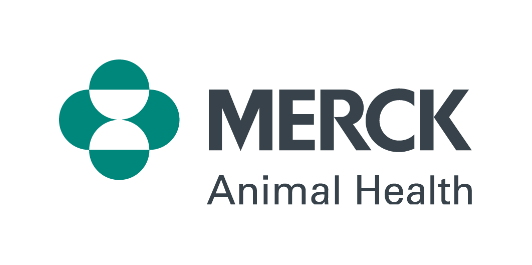Merck Animal Health Introduces Once PMH® IN

DE SOTO, Kan. Feb. 4, 2014 – Merck Animal Health today introduced Once PMH® IN, the only intranasal vaccine to deliver dual bacterial pneumonia protection in healthy beef and dairy cattle, including calves as young as 1 week of age. Once PMH® IN aids in the control of respiratory disease caused by Mannheimia haemolytica and in the prevention of disease caused by Pasteurella multocida – the leading causes of early-onset Bovine Respiratory Disease (BRD).
BRD has long-term health consequences that cost the U.S. cattle industry an estimated $800 to $900 million annually in medical and treatment expense, reduced animal performance and mortality.1 It’s also the single biggest killer of newly weaned calves.2,3
“The intranasal administration of Once PMH® IN stimulates a strong immune response because vaccine antigens are delivered directly to mucosal surfaces in the nose – the major sites of immune response in cattle,” said Rick Sibbel, D.V.M., Merck Animal Health director of beef cattle technical services.
Studies demonstrate young calves given an intranasal administration of Once PMH® IN performed better on body temperature and weight gain measures when compared to calves given a commercial subcutaneous pasteurella vaccine.4
“Calves given Once PMH® IN also had a dramatically reduced inflammatory protein level response, an indicator of infection and inflammation, which can adversely affect calf performance,” explained Dr. Sibbel.
Once PMH® IN is a non-adjuvanted formulation with two dosing options – 1 mL applied in each nostril of the animal or a 2-mL dose delivered in one nostril. Because there is no vaccine injection site, carcass quality is not compromised.
While annual revaccination is recommended, the vaccine can be administered more frequently, depending on the farm’s risk assessment or if the herd faces epidemic conditions. As always, consult your herd veterinarian for specific guidance.
Once PMH® IN is available in 10-dose and 50-dose packages. To further assist in vaccine delivery, Merck Animal Health has developed new, less invasive cannula and pump-its, which are available through Merck Animal Health representatives or veterinarians.
To learn more about Once PMH® IN, visit http://www.merck-animal-health-usa.com/species/cattle/.
About Merck Animal Health
Today’s Merck is a global healthcare leader working to help the world be well. Merck Animal Health, known as MSD Animal Health outside the United States and Canada, is the global animal health business unit of Merck. Merck Animal Health offers veterinarians, farmers, pet owners and governments one of the widest ranges of veterinary pharmaceuticals, vaccines and health management solutions and services. Merck Animal Health is dedicated to preserving and improving the health, well-being and performance of animals. It invests extensively in dynamic and comprehensive R&D resources and a modern, global supply chain. Merck Animal Health is present in more than 50 countries, while its products are available in some 150 markets. For more information, visit www.merck-animal-health.com.
Merck Forward-Looking Statement
This news release includes “forward-looking statements” within the meaning of the safe harbor provisions of the United States Private Securities Litigation Reform Act of 1995. These statements are based upon the current beliefs and expectations of Merck’s management and are subject to significant risks and uncertainties. If underlying assumptions prove inaccurate or risks or uncertainties materialize, actual results may differ materially from those set forth in the forward-looking statements.
Risks and uncertainties include but are not limited to, general industry conditions and competition; general economic factors, including interest rate and currency exchange rate fluctuations; the impact of pharmaceutical industry regulation and health care legislation in the United States and internationally; global trends toward health care cost containment; technological advances, new products and patents attained by competitors; challenges inherent in new product development, including obtaining regulatory approval; Merck’s ability to accurately predict future market conditions; manufacturing difficulties or delays; financial instability of international economies and sovereign risk; dependence on the effectiveness of Merck’s patents and other protections for innovative products; and the exposure to litigation, including patent litigation, and/or regulatory actions.
Merck undertakes no obligation to publicly update any forward-looking statement, whether as a result of new information, future events or otherwise. Additional factors that could cause results to differ materially from those described in the forward-looking statements can be found in Merck’s 2012 Annual Report on Form 10-K and the company’s other filings with the Securities and Exchange Commission (SEC) available at the SEC’s Internet site (www.sec.gov).
- Chirase, N. K. and L. W. Greene. 2001. Dietary zinc and manganese sources administered from the fetal stage onwards affect immune response of transit stressed and virus infected offspring steer calves. Animal Feed Science and Technology. 93:217-228.
- NAHMS Dairy 2007 Part I: Reference of Dairy Cattle Health and Management Practices in the United States, October 2007. Available at: http://www.aphis.usda. Accessed January 2014.
- NAHMS Beef 2007-2008 Part IV: Reference of Beef Cow-Calf Management Practices in the United States, February 2010. Available at: http://www.aphis.usda.gov/animal_health/nahms/beefcowcalf/downloads/beef0708/Beef0708_dr_PartIV.pdf. Accessed January 2014.
- Data on file, Merck Animal Health.
